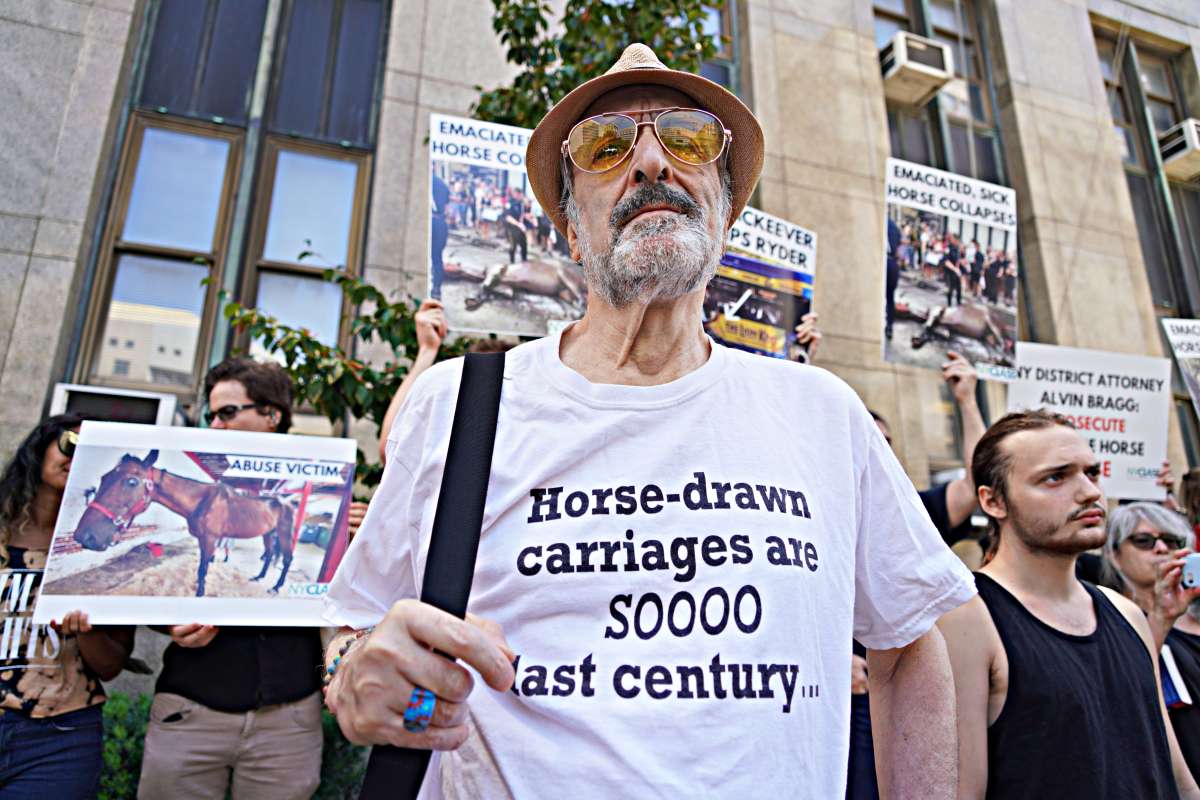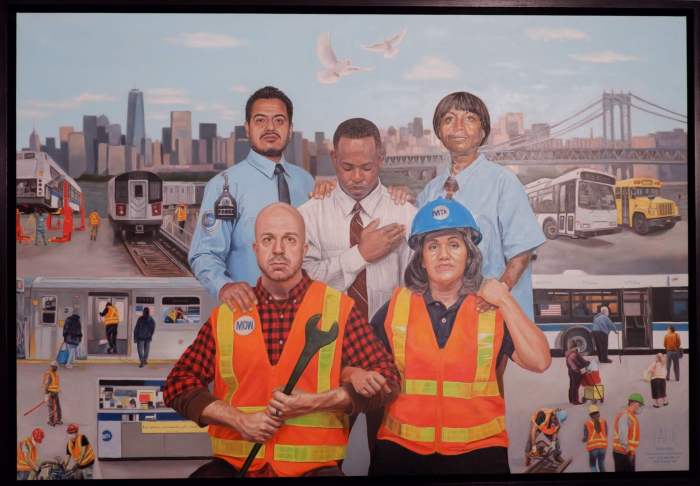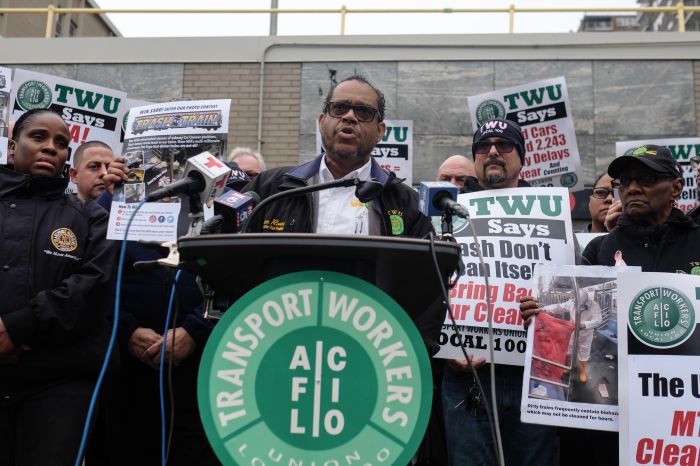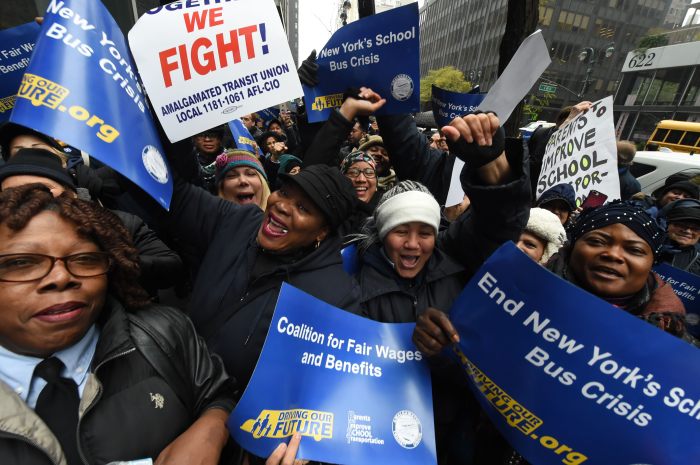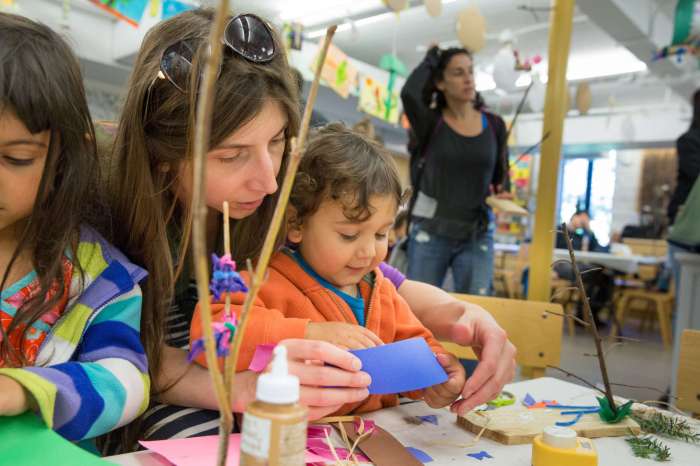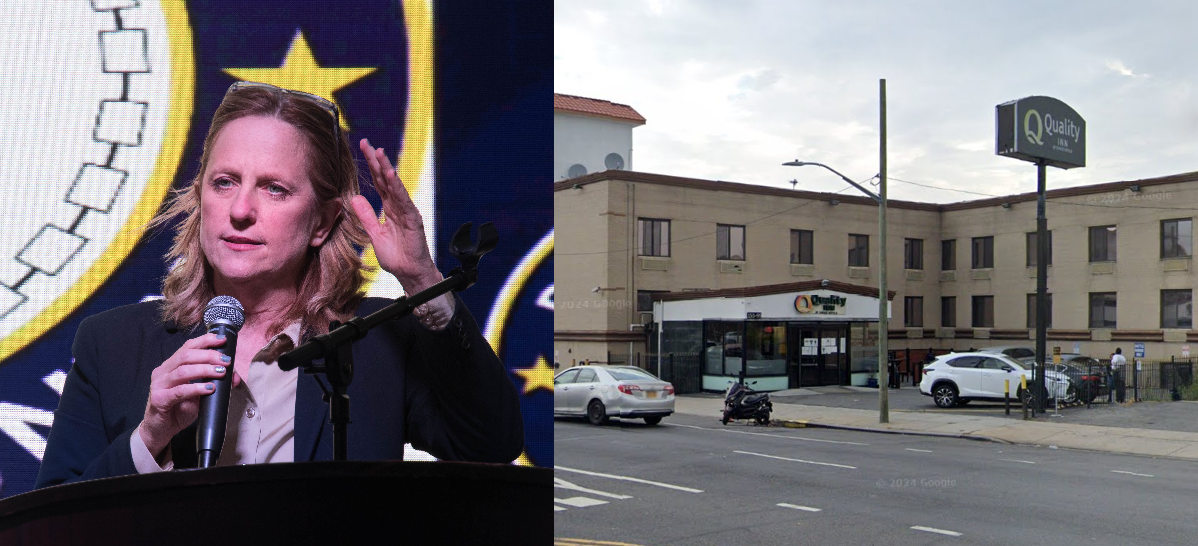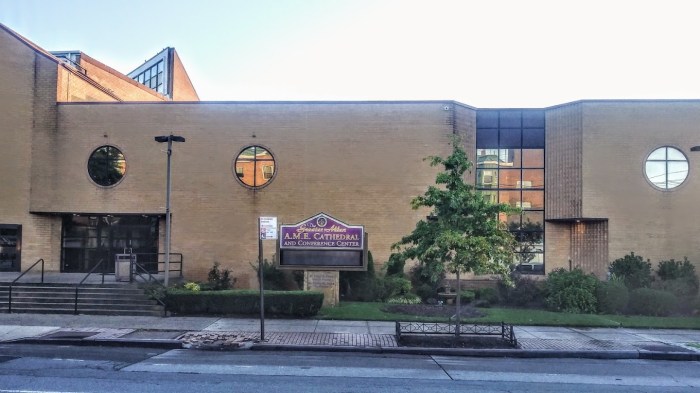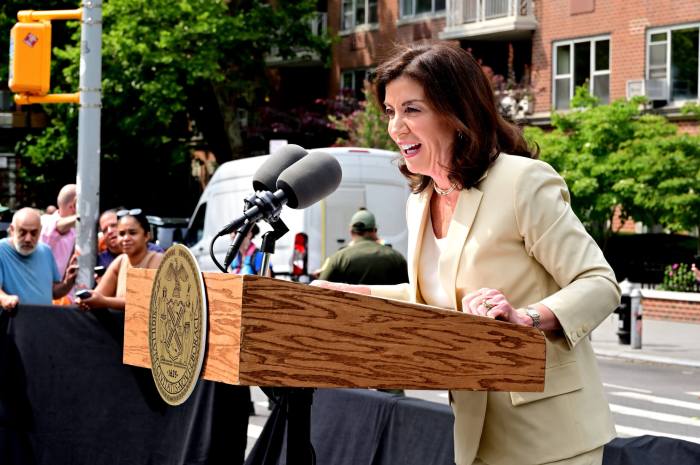Animal rights advocacy organization says they have located Ryder, the horse which collapsed in Midtown after the work animal was quietly taken out of the city by the carriage industry.
Activists had been searching for the aging workhorse ever since Transit Workers Union Local 100 claimed he was safe and sound at an upstate farm following outrage over his treatment. Now, the Center for a Humane Economy claims to have located Ryder after a tip from a horse rescuer.
According to the Center for a Humane Economy, Ryder is being housed at Clover Hill Farm in Wallkill. While the organization says they are relieved to have located the animal, which has been gaining support and has become a symbol to shutter the carriage industry, they also charged that the equine isn’t exactly in paradise.
“It’s good news that we know where Ryder is. But it’s bad news that he’s landed at this operation. In short, we don’t believe he’s safe at Clover Hill Farm,” said Julie Marshall of the Center for a Humane Economy.
The organization believes that the farm does not have the necessary resources to properly care for Ryder due to his underlying health issues. Not only that, they say that the farm’s primary motive is to attract tourists while also criticizing the farm for selling meat from their animals.
“This farm is aligned and connected with the worst actors in the carriage-horse industry and it’s apparent that Ryder’s movement there has been designed to keep eyes off of this horse, while the industry provides false assurances that he’s recovering and at a place with excellent caretaking capacity,” Wayne Pacelle, President of the Center for a Humane Economy said.
The group is also criticizing the farm for having a primary focus on temporary lodgings rather than long-term care. It is with this in mind that many animal rights groups say they are concerned for Ryder’s future well-being.
“Ryder is currently being hidden away at a facility his abusers chose for him,” said animal rights activist and actor Alexandra Paul. “My biggest concern is that Ryder is not being given the retirement he deserves, and that he is likely to be sent to slaughter. Many sanctuaries have offered a beautiful place for Ryder to spend his last days, and that is where he should be – in the quiet countryside, able to roam in pasture. We must end this barbaric (and outdated) carriage horse industry. Ryder is one of 160+ horses that spend their days pulling hundreds of pounds of tourists around the clogged urban streets of NYC in all kinds of weather. We need to fight for all of them.”
“Finally, after the TWU refused to say where they had hidden Ryder – a neglected, sick and elderly horse who has been abused by carriage owners – we now have a location where the Manhattan District Attorney can conduct a full investigation into Ryder’s health in addition to the horrific conditions of the stable. However, upon learning that Clover Hill Farm is a for-profit farm in the carriage horse industry and deeply connected to the NYC carriage horse owners, we are extremely concerned that Ryder is not in good hands, considering their constant lying and callous, indifferent and frightening abuse of the 30-year-old horse in recent weeks, ” Edita Birnkrant, Executive Director for NYCLASS told amNewYork Metro. “Ryder belongs at a legitimate sanctuary that guarantees lifelong love and care, not a farm that slaughters animals.
After Ryder’s collapse on Aug. 10, Ryder was deemed to be around 30 years old by an NYPD veterinarian, which has activists calling for legal ramifications.
Even so, Christina Hansen, communications liaison for the Historic Horse-Drawn Carriages of Central Park, charged the animal rights activists were splitting hairs over the terminology, and refuted claims Ryder was in any further danger at his new farm.
“The word ‘sanctuary’ has no meaning in terms of care of the horse. There are millions of horse owners who provide excellent care for their horses without depending on donations to pay for the animals,” Hansen said. “Non-profits are especially susceptible to economic downturns as it impacts giving, and animals have had to be rescued from rescues. ‘Sanctuaries’ are commercial endeavors and have to be run like businesses – and they pay their staff salaries. Ryder will be better off with an equine professional who does not need to exploit him for donations and who won’t use him to advance a political agenda.”



